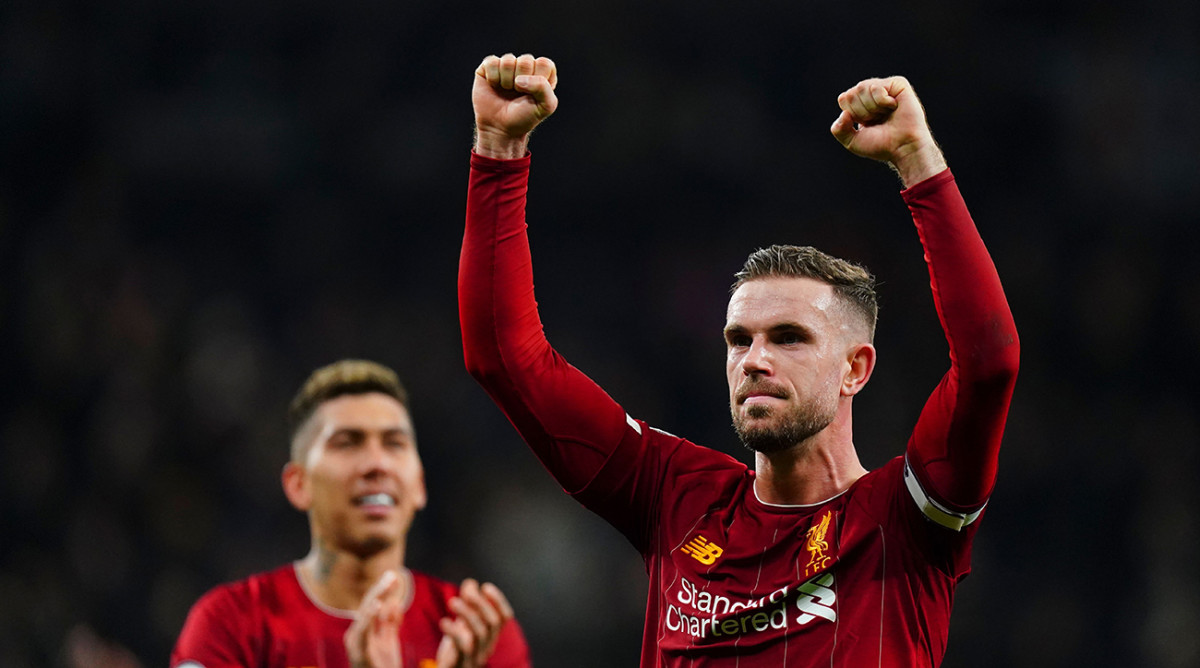Liverpool Continues Historic Run, Impressive Transformation With Sixth Straight Clean Sheet

The league title already seems done and dusted. Even the accumulated neuroses of 30 years without a championship surely cannot derail Liverpool now: With 17 games of the season remaining, its lead after Saturday’s 1-0 win at Tottenham is 16 points with a game in hand over Leicester and 17 points over the champion Manchester City, and the questions are about what additional achievements it may rack up. An unbeaten season to match Arsenal’s in 2003-04 and a 100-point season to match Manchester City’s the season before last are both within reach.
It doesn’t take much of course for a team to slip from apparent invincibility to stuttering awkwardness. Injuries could intervene—and Liverpool, rotating less than most, might be vulnerable were Virgil van Dijk, Trent Alexander-Arnold or one of the front three to suffer a lengthy absence. It may be that as the season nears its end—indeed, Liverpool would hope it is the case—the club’s focus shifts away from the league to the Champions League, but for now it is an awesome force. To have dropped only two points in 22 games so far is an extraordinary feat, the best ever in any of Europe's top-five leagues: Liverpool can lose four games from here and still match City’s 100-point mark.
That is a remarkable achievement and the fact it has been done with a net spend over the past four years of under $100 million is truly remarkable, testament to how well-run Liverpool has been in that time. But it is also an achievement that sounds alarm bells. How healthy is it, really, for 100 points to be necessary for the league title? Two seasons ago, Manchester City took 100, last season 98. It’s possible simultaneously to celebrate the brilliance of the football of City and Liverpool and to admire how well-coached they are, while at the same time wondering about the financial imbalance that makes that sort of dominance over a league possible.
Perhaps they are simply two brilliant teams and there will in time be a regression toward more historically normal standards, but equally they have benefited from enormous wealth—Liverpool’s admittedly less than City’s and earned more through its footballing heritage—that allows them to have two of the highest age bills in world sport.

This was the sort of challenge Mourinho relishes. He is never so good as when trying to spoil somebody else’s party, as Liverpool fans remember all too keenly. That defeat to Chelsea at Anfield in the game when Steven Gerrard slipped to gift Demba Ba a goal is arguably the emblematic moment of the past three decades of failing to win the league. But that’s not a matter of motivation—or at least not just a matter of motivation. Mourinho at his best is very good at both the tactical challenge of stopping an opponent and at modulating the mood of a game.
Here, it was clear early on how determined he was to prevent Liverpool’s fullbacks from dominating the game, making sure they were penned in. And the Spurs’ direct approach did cause Liverpool problems in the opening quarter. But still, it was hard not to think back to some of the early clashes between Liverpool and Tottenham and how they seemed at the cutting edge of modern tactics, two hard-pressing sides hammering at each other, each seemingly on the way up. It was obvious how far Tottenham, not helped by injuries, has fallen, as it sat in and looked to direct counters in behind Liverpool’s fullbacks. With Liverpool forced into a more possession-based game, it took Jurgen Klopp’s side just 34 minutes to reach the total completed passes it made in the Champions League final in June.
But none of that mattered. This Liverpool doesn’t get frustrated. It just keeps going and eventually the goal comes. It took 37 minutes here, before Jordan Henderson won possession, Mohamed Salah played the ball to Roberto Firmino and the Brazilian scored with a thumping finish.
1-0 THROUGH BOBBY FIRMINO 🔴 pic.twitter.com/18tqO5HhW5
— NBC Sports Soccer (@NBCSportsSoccer) January 11, 2020
And what’s perhaps most remarkable is how Liverpool has developed over the season. Early on, it seemed a little frenzied, able to outscore opponents without necessarily having much control. It has now kept six clean sheets in a row, and that despite the absence due to injury of Fabinho, who was widely regarded as the best holding midfielder at the club. Henderson, a willing learner who improves almost week-by-week, has slotted into his role with remarkable effectiveness.
Having gone ahead, Liverpool simply kept possession here, good enough to hold an opponent at arm’s length – at least until a slightly anxious final 10 minutes – without really exerting itself.
The title is surely Liverpool’s. All that remains are the milestones.
